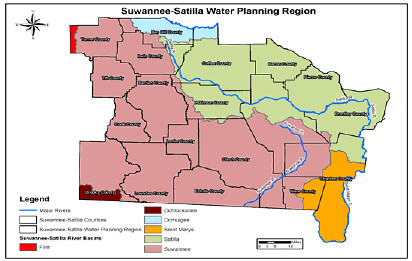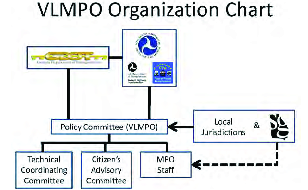Well-said, Alex. I’m baffled that this website and the local NAACP are against unification… the status-quo has created a haves/have-nots situation that is untenable if we are going to consider ourselves a progressive area. A unified system would bring uniformity to curriculum and scheduling, eliminate redundant administrative positions, and allow (force?) everyone in the county to have a stake in the educational development of all the children in the county. What basically exists now is institutional racism… predominately lower-income minority (& some white) kids attending resource-depleted city schools due to a shrinking tax base, and predominately white middle and upper income kids attending the resource-enriched county schools with an affluent tax base.Continue readingI can see the downside for an older,
Tag Archives: Planning
I understand what CUEE says —Alex Jones
Someone pointed me to your blog on the Biomass issue, and I came across your recent post on the school unification issue.Continue readingJust curious… have your ever examined the testing data for both school systems? A quick look at the last report card, and you will see why most people in this community believe our public education system is broken and does not adequately prepare our children to either attend college or enter the workforce.
Right now, we have two schools systems
Special Called Meeting 27 April 2010 —VLMPO
Continue reading
Valdosta-Lowndes MPO
Policy Committee
Special Called Meeting Agenda
Wednesday, April 27, 2011
1:30 PM
Ben Copeland on water and growth in south Georgia
 Ben Copeland asked the big question: “How much growth do we want?”
He related it to regional water in the aquifer, rivers, growth, and planning,
speaking at the Lake Park Chamber of Commerce annual dinner, 28 January 2011.
Ben Copeland asked the big question: “How much growth do we want?”
He related it to regional water in the aquifer, rivers, growth, and planning,
speaking at the Lake Park Chamber of Commerce annual dinner, 28 January 2011.
Copeland is Past Chairman of the Board, Wiregrass Technical College.
He serves on the regional water planning council.
He said
those councils were started due to worries
about Atlanta not having a reliable water supply.
He said the councils were
planning for water and wastewater to 2050.
The local regional council is the
Suwannee-Satilla regional water council.
 He described the
extent of the water planning region (see map).
He
expects finalization of the water plan by May.
He talked about the Floridian aquifer, and how he’s worried not so much about Atlanta taking our water as about Orlando, Jacksonville, and Tallahassee.
“Because they all have their straws in that same aquifer.”
He described the
extent of the water planning region (see map).
He
expects finalization of the water plan by May.
He talked about the Floridian aquifer, and how he’s worried not so much about Atlanta taking our water as about Orlando, Jacksonville, and Tallahassee.
“Because they all have their straws in that same aquifer.”
Finally, Ben Copeland asked the big question: “How much growth do we want?”
“Do we want to be Jacksonville? Do we want to be Tallahassee? Do we want to be a large metropolitan region?Continue readingFolks are going to move to south Georgia, I can tell you that, because of all the resources that we have. I’m a great believer in the free enterprise system. How much do we try to limit that?
VLMPO Planning Meeting
 A local planning organization that studies advertises frequent meetings
for input and studies facebook usage data to see what people care about?
That’s the Valdosta-Lowndes Metropolitan Planning Organization (VLMPO),
which holds frequent and repeated hearings on major projects.
Next week it’s having its regular
Policy Committee Meeting
1:30PM to 4:30 PM, Tuesday 11 Jan 2010,
at the SGRC office at 327 West Savannah Ave., Valdosta.
You can see what they’re up to
about traffic congestion, busses, trains, bicycles, Moody access, conservation, or other issues,
and voice your concerns.
Continue reading
A local planning organization that studies advertises frequent meetings
for input and studies facebook usage data to see what people care about?
That’s the Valdosta-Lowndes Metropolitan Planning Organization (VLMPO),
which holds frequent and repeated hearings on major projects.
Next week it’s having its regular
Policy Committee Meeting
1:30PM to 4:30 PM, Tuesday 11 Jan 2010,
at the SGRC office at 327 West Savannah Ave., Valdosta.
You can see what they’re up to
about traffic congestion, busses, trains, bicycles, Moody access, conservation, or other issues,
and voice your concerns.
Continue reading Suniva went to Solar Valley, Michigan, which has a plan
 Suniva’s
second solar PV manufacturing plant that Georgia couldn’t keep
went to Saginaw, Michigan,
where the editorial board of The Saginaw News lists it as
just one bullet item:
Suniva’s
second solar PV manufacturing plant that Georgia couldn’t keep
went to Saginaw, Michigan,
where the editorial board of The Saginaw News lists it as
just one bullet item:
• Georgia-based solar panel maker Suniva is well along in its federal loan guarantee application so it can build a plant in Saginaw County.So what is the big news that they’re editorializing about?
The Solar Valley is starting to snowball.Continue readingAmid the campaigning and squabbling on the Friday before last week’s statewide election were two electric announcements promising a big buzz for our region’s future.
Phyllis Stallworth: “I am gravely concerned and disappointed”
-jsq
Valdosta is an innovative city with expanding opportunities for our growing community. Valdosta has recently celebrated 150 years of progress. As a citizen, I have spent most of my adult life experiencing this progress. I’ve seen economic developments through recruitment, retention and expansions that benefit our city, with tremendous support from our communities. I’ve seen job opportunities that improve the livelihood of our citizens, through the recruitment of national companies who have established their businesses in our great city.Continue readingOur school systems are innovative, and they serve as models for other school systems in our state, with great parental involvement and encouragement toward improvements. Our University and College systems are some of the best in the state, with phenomenal enrollment and retention of traditional and non-traditional students in our city and abroad.
Our religious establishments are growing from leaps and bounds with more and more people becoming citizens of our great city, who are leaving larger unsafe, polluted, and unproductive cities, for a safer, less polluted and productive small town lifestyle, such as our wonderful city provides.
The development of small businesses, through our downtown projects, have been a great success story for our city. The innovative improvements make our city one of the most visited in our state. We pride ourselves as a Titletown community, through continuous progress over 150 years.
When I contemplate our shared 150 years of progress, I find it disturbing that our Industrial Authority would make such a bad decision as to bring a Biomass incinerator into our community. As an advocate for the welfare of children, women, and families I am gravely concerned and disappointed that such a project has been endorsed by leaders who were elected to carry out the wishes of the community for the betterment of all citizens.
Bergstrom, Noll, and Gunning biomass questions from June 2009
-jsq
TO: Lowndes Co. CommissionContinue reading
RE: Wiregrass LLC Biomass Electricity Plant
Date: June 9, 2009Dear Lowndes County Commissioners.
As the county is currently considering the development of a biomass electricity plant, we wish to share some important concerns and questions with you, which we believe need to be addressed before any further action is taken.
First, the proposed biomass plant is being touted as a “Green Energy” project because it produces electricity from renewable materials. However, this wood waste and yard waste could have other uses—such as compost, landscaping mulch and forest soil amendments, which are much “greener” still and produce no pollution at all. The fact that these materials are labeled “waste” tells you something, and Reducing, Re-using, and Recycling waste should come higher on the list of green processing than incinerating it.
Communities, not Cul de sacs
 Update: Trees make streets safer and
Fixing a perfect storm of bad planning and design.
Update: Trees make streets safer and
Fixing a perfect storm of bad planning and design.
Eric M. Weiss writes in the Washington Post on 22 March 2009 about In Va., Vision of Suburbia at a Crossroads: Targeting Cul-de-Sacs, Rules Now Require Through Streets in New Subdivisions
The state has decided that all new subdivisions must have through streets linking them with neighboring subdivisions, schools and shopping areas. State officials say the new regulations will improve safety and accessibility and save money: No more single entrances and exits onto clogged secondary roads. Quicker responses by emergency vehicles. Lower road maintenance costs for governments.Banning cul-de-sacs was one of the New York Times Magazine’s 9th Annual Year in Ideas, because it’s safer and less expensive: Continue reading
McDonalds Denied Sign Variance for Foxborough Store
Fast-food giant McDonalds applied for a sign variance so they could have signs the same size as everywhere else, so they wouldn’t have to do a custom job. The Technical Review Committee (TRC) recommended against. Attorney Gary Moser summed up the opinions of 200 Foxborough residents who don’t want the added light from the sign and headlights. He also mentioned Vince Schneider is being deployed to Afghanistan and doesn’t want the added lights when he gets back in six months.
Surprise speaker Gary Minchew, a well-known local developer, spoke against the variance, citing the arrogant behavior of McDonalds, which he said insisted on keeping a variance through his property he had granted First State Bank, even though he had not intended it to be used by a fast-food buyer of the bank property.
The Valdosta-Lowndes County Zoning Board of Appeals voted unanimously to deny the variance. Pictures and videos to follow.
-jsq